Changing the digital equation – Unlocking the power of hi-tech equality
March 6, 2023
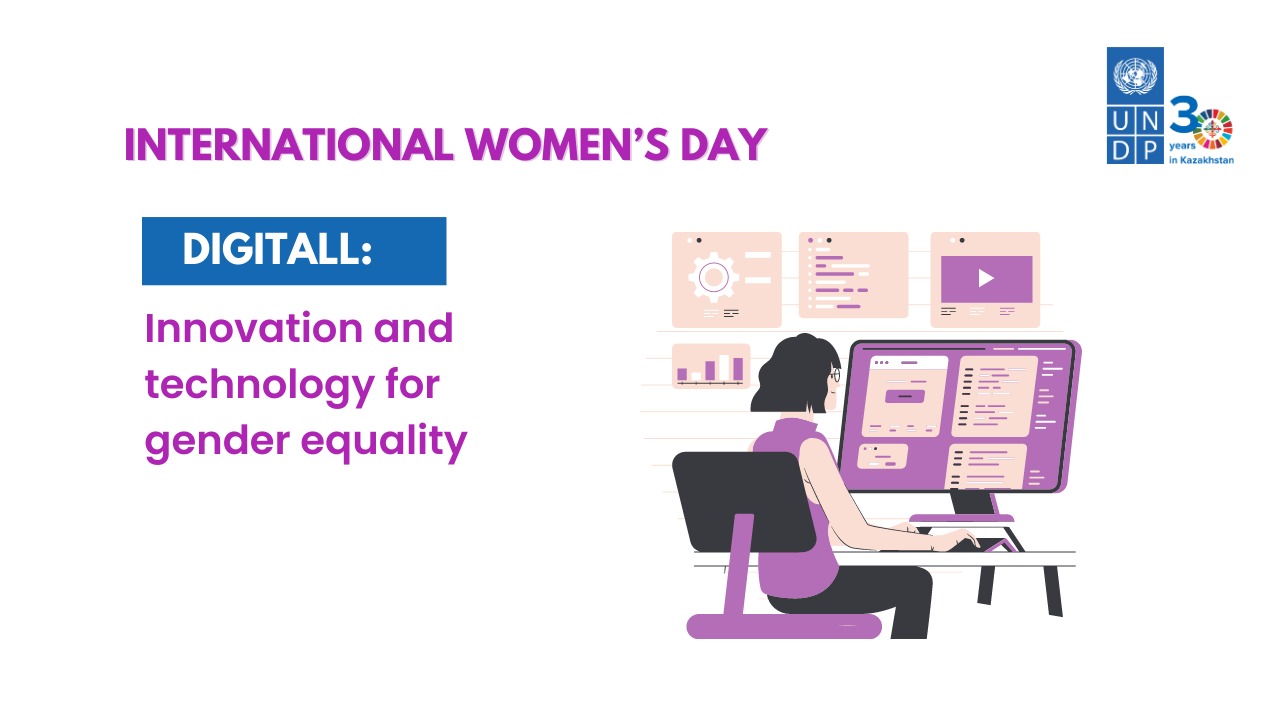
International Women’s Day in 2023, themed “DigitALL: Innovation and technology for gender equality”, highlights the urgent need to look at the gender equality agenda with new eyes, abandoning old notions of gender. The message is clear – harnessing digital technologies for the benefit of both women and men is not only about access, but also about proper education and fair representation on this digital journey.
Today global technological trends and narratives are mixed: they do open new vistas of opportunities for women in innovation, but every opportunity must be taken to seize the momentum to close the gender gap.

The digital divide has become the new face of inequality – in concrete terms roughly 37 percent of the world’s population still have no internet access. Significant gender gaps remain in access to digital technologies and digital skills – 69 percent of men use the internet vs 63 percent of women. But the digital divide is not only about hard infrastructure that increases the damage to human potential. In human terms, globally women are only 28 percent of the STEM workforce, and are less likely than men to have degrees in science and tech-related fields.
The root causes of inequality can be found in unconscious biases and harmful gender stereotypes. Researchers claim such norms already affect children’s minds at preschool age. Later at school there is a general perception that success in a STEM field is associated with gender, not with hard work. The outcome – low representation of women even in STEM textbooks, then on executive boards of hi-tech companies. As a recent study claims, women are vastly underrepresented among founders and investors of Web3 companies and get four times less funding than all-male companies. Such trends must be addressed through institutional change and a transformation of social norms.
Kazakhstan – climbed the gender equality ladder
In recent years, Kazakhstan has progressed in the gender equality agenda. According to the latest Global Gender Gap report, the country rose to the 65th ranking, an impressive leap in the last decade. The country has invested in a major way in digitalizing public services. Recently, Kazakhstan ranked 28th in the e-Government Development Index 2022. The internet penetration rate is also quite high at 85,9 percent, with 84.9 percent of women having access to it.

But in rural areas where 38 percent of Kazakhstan’s population reside, with half of the population being women, broadband internet coverage there is patchy and limits opportunities for self-development.
Of note, even stable internet coverage may not succeed in narrowing the digital divide. Users may simply be unable to afford internet services, lack knowledge of safe online communications or be vulnerable to risks – cybersecurity, privacy and misinformation and disinformation. Digital inclusion is inextricably linked with being able to take advantage of safe digital content and services.
UNDP committed to closing the gender digital divide
The vision guiding UNDP’s Digital Strategy 2022-2025 is that “digital technology is a fundamental force for change”. The strategy takes an inclusive and rights-based, whole-of-society approach to digitalization, namely, to leave no one behind.
UNDP Kazakhstan remains committed to bridging the digital gender gap and using digitalization to address gender-based violence and to advance women's economic empowerment. Here is why:
Women’s entrance into the digital economy is essential for their autonomy and for countries’ growth. The cost of excluding them from the digital space has profound economic impacts. Limited access to mobile phone, lack of digital skills and rudimentary financial literacy, coupled with a lack of official documentation and biased social norms, are the factors that maintain the gender digital financial divide.
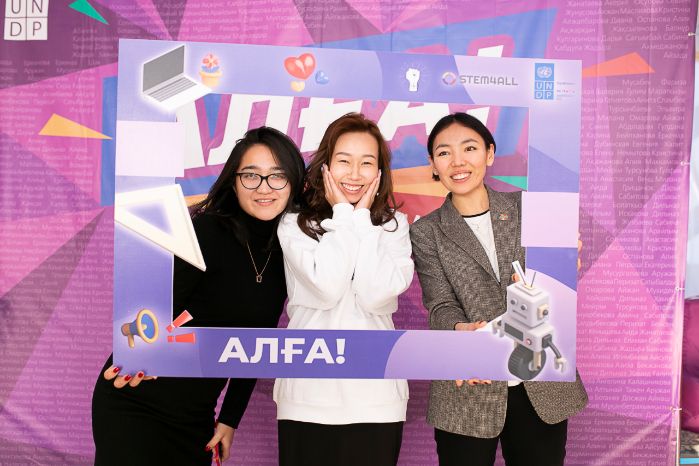
UNDP continues supporting women innovators and entrepreneurs across the globe. For instance, in 2021 UNDP Kazakhstan held an “Alga!” bootcamp aimed at promoting digital inclusion and leadership among women in remote areas of Kazakhstan to improve their employment opportunities in the tech sector. Women role models in ICT and STEM pathways were held up as avatars to raise participants’ awareness of the requisite skills for the 21st century.
Digitalization creates opportunities but also challenges in the delivery of public goods and services. In a digital age, traditional service delivery mechanisms are no longer sufficient, and adapting their public sectors to digital ecosystems is a priority for most governments. In Kazakhstan, UNDP Kazakhstan is very proud to have supported the government in establishing the Digital Family Card – an innovative solution helping to provide prompt and effective government support to the most vulnerable families.
According to experts, the introduction and use of the Digital Family Card in Kazakhstan will both increase government efficiency in providing quality support to the public and serve as a 'bridge' on the path to equal access to social protection and security.
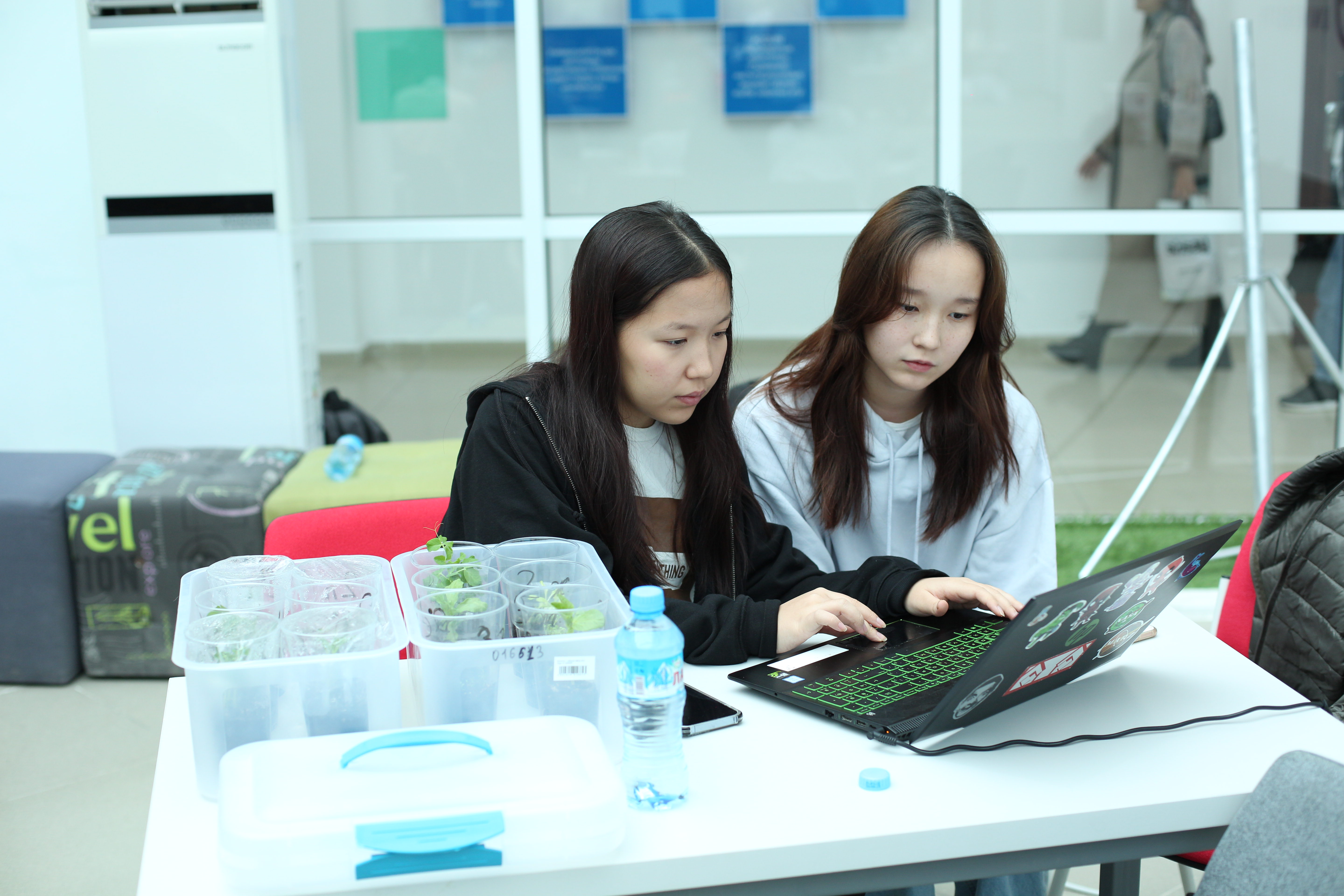
UNDP steps in to help protect women’s rights in digital public sphere
One caveat – with the abundance of opportunities digitalization brings also comes the threat of online violence. This violence in the digital public sphere and in political life is threatening women’s participation and their mental health and well-being across the globe. Gaps in standards, legal frameworks and law enforcement to protect women’s rights in the digital public sphere result in infringements of their rights and freedoms.
In that regard, UNDP Kazakhstan is taking an active stand – engaging youth to use technology to end violence and harassment against women and girls. Thanks to the marathon of ideas, conducted by the Regional Spotlight Initiative, young people from five Central Asian countries developed 58 solutions to address gender-based violence in the region. An important moment in the quest for gender equity.
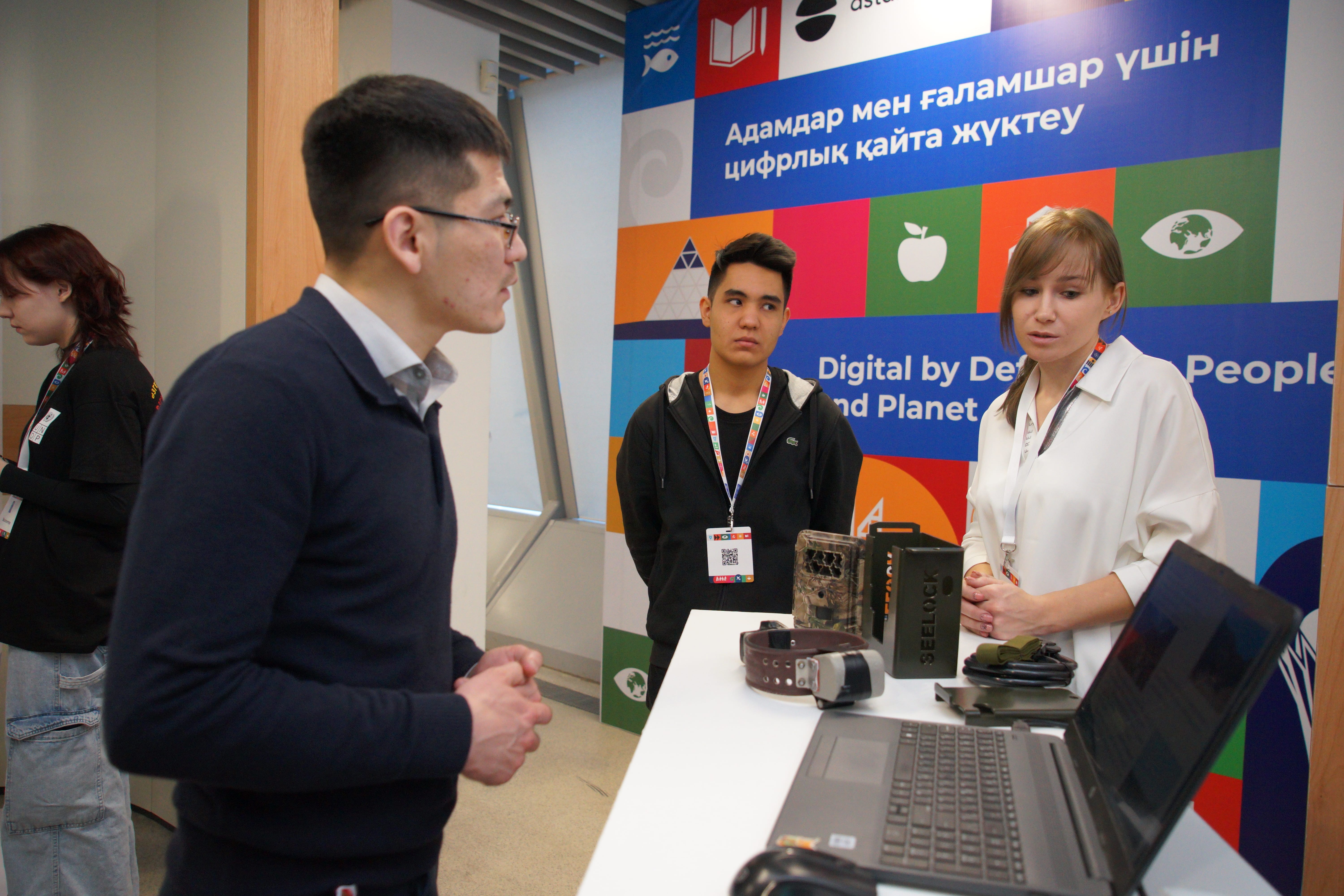
Thus, only by normalizing the pivotal role of women and girls in shaping the innovation agenda can we tackle the complex economic and social inequities the world is currently experiencing – from gender digital divide to amplifying women voices to advance transformative technology and digital education.
UNDP’s vision is to address both sides of the equation and to actively engage women and girls so their untapped potential can jump-start the tech economy.
The article is prepared in partnership with astanatimes.com
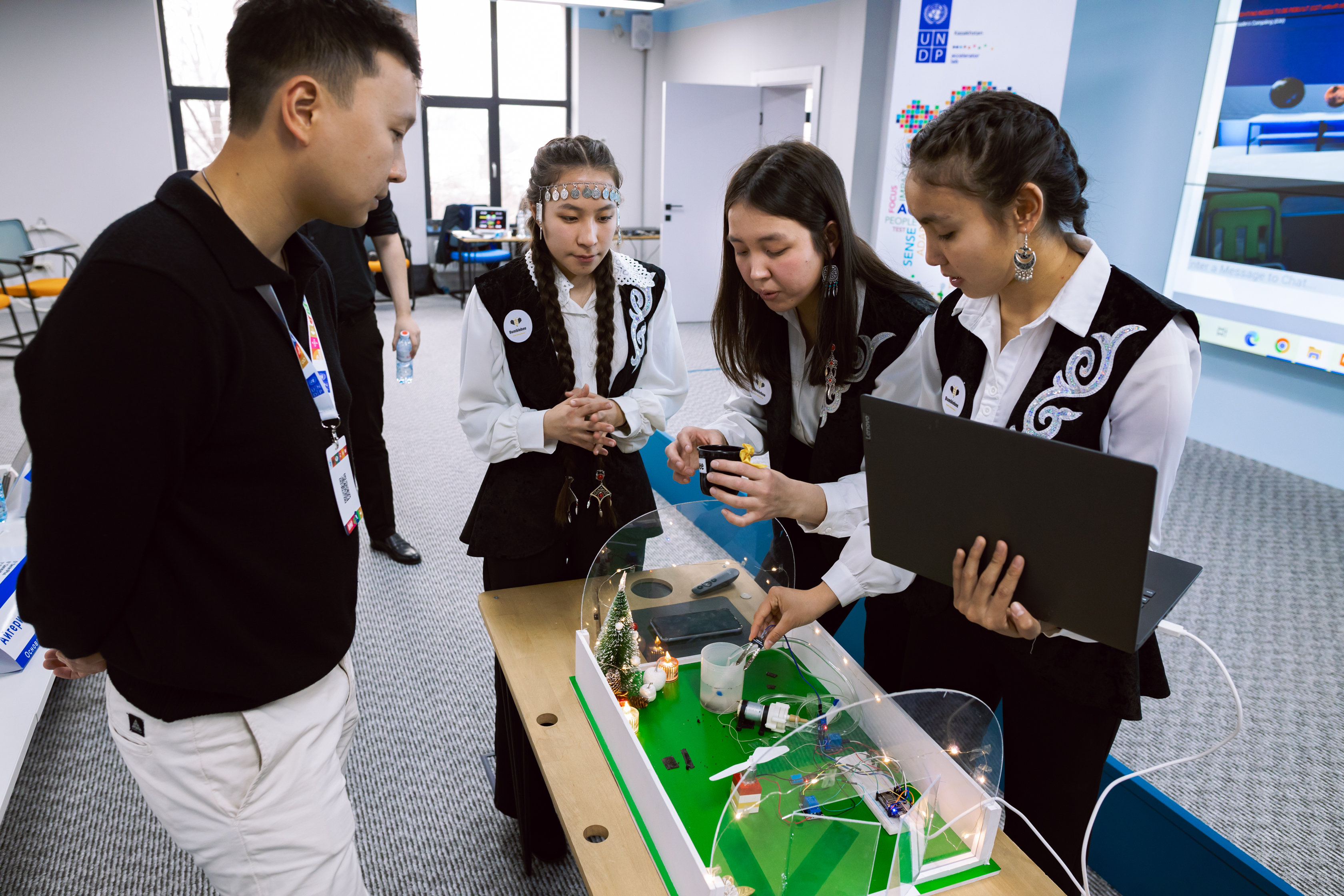

 Locations
Locations